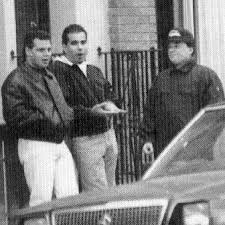The Life and Times of Joey Merlino: A Mafia Leader

Introduction
Joey Merlino, a name synonymous with the Philadelphia mafia, represents both the allure and tumult of organised crime in the United States. His story is not just an account of criminal activity but also a reflection of the intricate social fabric woven by such figures in American history. Understanding Merlino’s rise and who he is today offers insight into the complexities that define Mafia operations and culture.
Background and Criminal Involvement
Born on April 13, 1962, in a close-knit Italian-American community in Philadelphia, Merlino grew up in an environment where mob connections were not uncommon. He rose within the Philadelphia crime family, eventually becoming one of its most recognised leaders during the 1990s. His reputed involvement in racketeering, extortion, and illegal gambling has made him a prominent figure in federal investigations and legal troubles. In 2001, Merlino was convicted on charges including racketeering, leading to a 14-year prison sentence.
Recent Developments
Merlino was released from prison in 2018, and since then, his life has taken various turns. He has sought to distance himself from criminality, asserting a desire for a quieter lifestyle. However, his connections and past continue to attract media attention and speculation. Reports surfaced in early 2023 indicating that law enforcement remains vigilant regarding any potential mafia resurgence linked to figures like Merlino. In particular, the FBI has made efforts to monitor his social activities and associations, revealing an ongoing concern about the influence of organised crime in the region.
Significance and Future Outlook
The story of Joey Merlino encapsulates not only the personal narrative of one man but also reflects broader issues of crime, law enforcement, and Italian-American culture in the United States. As authorities continue to strive for control over organised crime, the legacy of figures like Merlino will linger, serving as a reminder of the deep-rooted challenges faced by communities and law enforcement agencies alike. While Merlino himself has expressed an intent to leave his old life behind, the ongoing fascination with his story suggests that he may still be relevant in discussions about the future of organised crime in America. The landscape is continually evolving, and with shifting dynamics within criminal organisations, understanding Merlino’s role remains crucial for both law enforcement and those interested in the history of the mafia.
